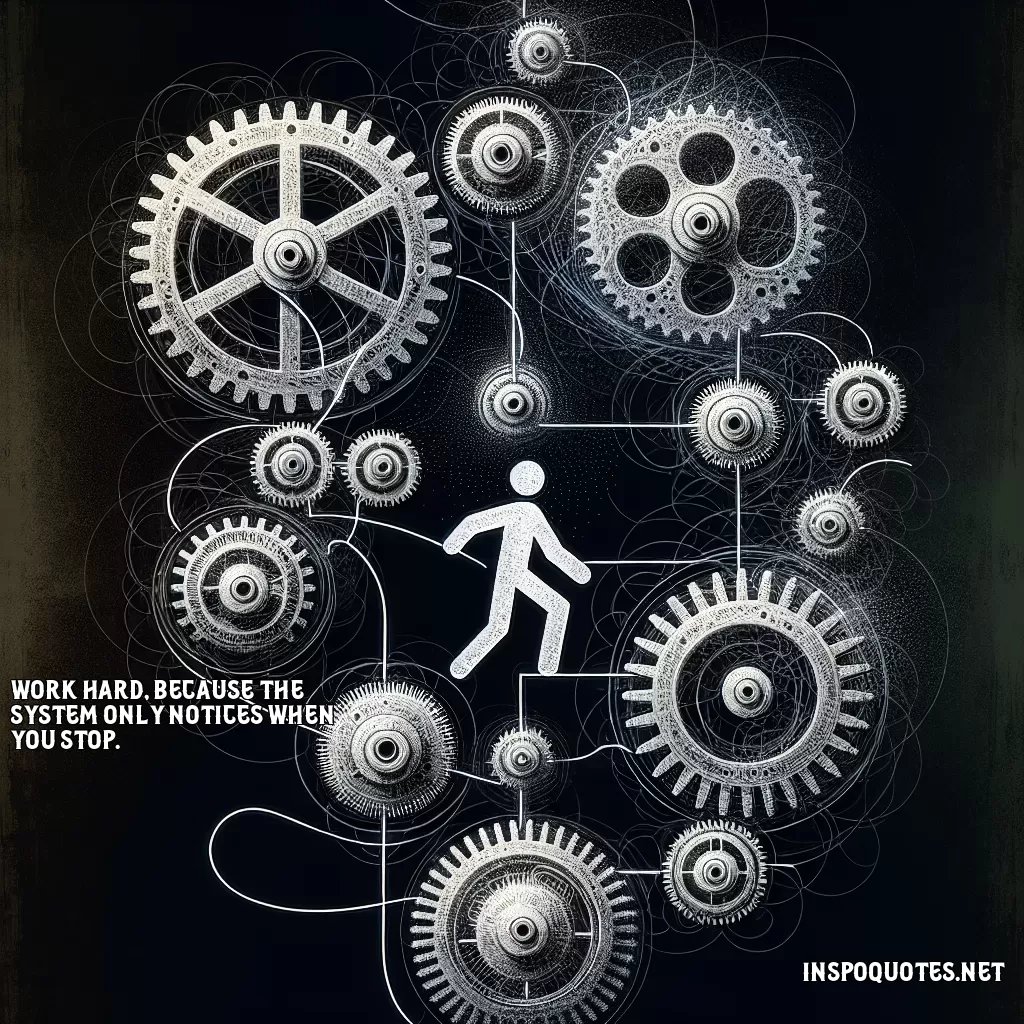
Work hard, because the system only notices when you stop.
Author: Vikram Sarabhai
👁️ 14 views
The quote "Work hard, because the system only notices when you stop" highlights the often-unseen nature of effort and diligence in today's fast-paced, result-oriented world. In many workplaces and institutions, individual contributions can frequently go unnoticed amidst the collective output. The "system" refers to the organizational, corporate, or social structures in place to assess performance. These systems are often designed to ensure continuity and productivity, and they typically pay more attention to disruptions or failures than to consistent performance. This quote suggests that hard work, while essential, can easily be taken for granted. The consistent effort of individuals is fundamental to the success of any organization, yet it often becomes visible only when it ceases. Imagine a machine operating smoothly; its operation is assumed rather than celebrated, but the moment it falters, attention is immediately drawn to it. Similarly, a person's diligent work may blend into the background, going unnoticed until they stop or their performance declines. This perception can lead to feelings of invisibility among dedicated workers, who may feel that their contributions are undervalued. It stresses the importance of self-motivation and perseverance in the face of a system that might not always offer recognition or immediate rewards. Moreover, the quote implies that individuals should maintain their work ethic despite external validation, emphasizing intrinsic motivation over extrinsic validation. The key takeaway is to acknowledge the significance of continuous effort and to remind oneself of the personal satisfaction and potential long-term outcomes, rather than seeking constant external recognition. It is also a call to managers and organizations to appreciate and recognize the hard work of their members proactively, rather than waiting for lapses in performance to address contributions.
Quote By: Vikram Sarabhai
Vikram Sarabhai (1919-1971) was a visionary Indian scientist and entrepreneur, widely recognized as the father of the Indian space program. Born on August 12, 1919, in Ahmedabad, Gujarat, Vikram Sarabhai displayed an early interest in science and technology, which he pursued by obtaining a degree in physics from the University of Cambridge. His academic journey further involved research at the California Institute of Technology, where he worked on cosmic rays, allowing him to blend his scientific acumen with entrepreneurial foresight.
Vikram Sarabhai's contributions to the Indian scientific landscape were profound and transformative. He was instrumental in the establishment of the Indian National Committee for Space Research in 1962, which later evolved into the Indian Space Research Organisation (ISRO) in 1969. Under Vikram Sarabhai's leadership, ISRO launched its first satellite, Aryabhata, in 1975, marking India's entry into the arena of space exploration. His belief that space technology could play a vital role in national development drove him to champion projects that would apply space applications for socio-economic growth and promote research in natural resources, agriculture, and meteorology.
In addition to his influential role in space research, Vikram Sarabhai was a prolific advocate for education and scientific research in India. He founded various institutions, including the Indian Institute of Management, Ahmedabad (IIMA), which has grown to be one of the premier management schools in India. Through these endeavors, Vikram Sarabhai aimed to create a bridge between science, technology, and society, emphasizing the importance of innovation in the field of education.
Vikram Sarabhai's legacy is not solely confined to his scientific achievements. He was also a visionary leader who recognized the significance of self-reliance and technological advancement for a developing nation. His contributions have inspired countless scientists and engineers in India and around the world. Vikram Sarabhai passed away on December 30, 1971, but his pioneering spirit and dedication to advancing India’s scientific capabilities continue to resonate today, making him an enduring figure in the world of science and technology.